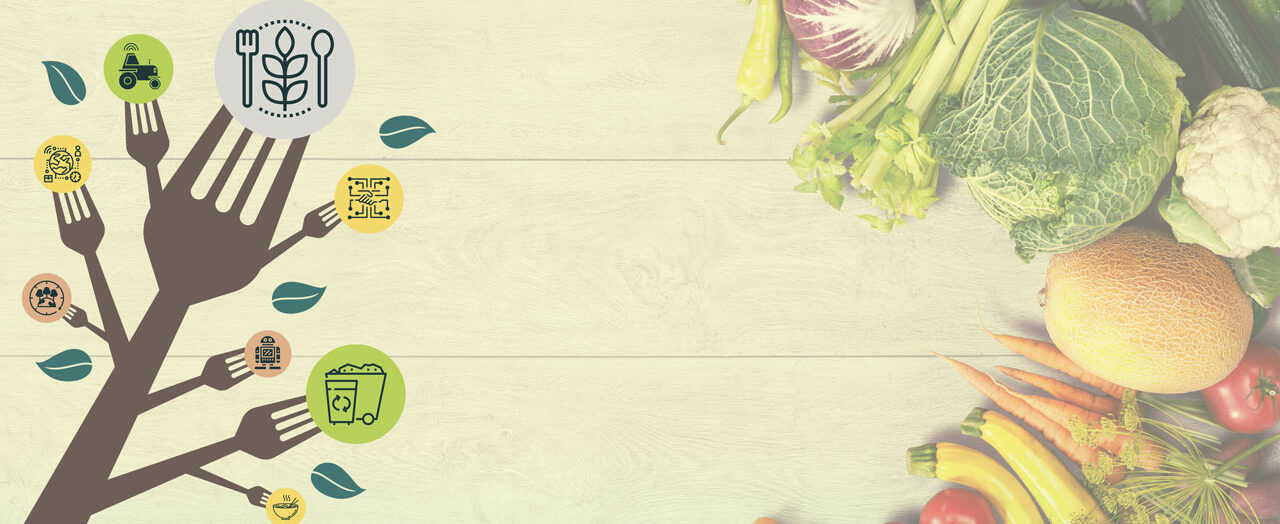
In the context of the Swiss Digital Days Conference held from the 1st to the 3rd of November 2020, swissnex Brazil and the Science and Technology Office Seoul organized a virtual event on FoodTech and how we will eat in the future.
The event held on the 3rd of November was a collaborative debate between experts in the areas of agriculture, FoodTech and waste management from Brazil, South Korea and Switzerland. The participants were divided in three groups to discuss the topics of agriculture and the food system, alternative and new foods, and food waste, using the “tell” format.
Agriculture System and Food
The first roundtable discussed the challenges in the area of agriculture and the food system as a whole. While Brazil is one of the largest food producers in the world, this is not the case for South Korea and Switzerland. Technology has been playing a crucial role in the three countries, however digitalisation is mainly reaching larger farms and businesses rather than smaller ones. The available technologies are sometimes cost-prohibitive for small farmers, and reducing those cost will increase the adoption. Consumers are also disconnected from the agricultural sector, and therefore transparency about the origins and the production of food is important for more sustainable and inclusive food systems. Regulatory bodies play a key-role in determining the standards and safety of food production, but the decision-makers need to include as many stakeholders as possible. Digitalisation and new technologies are helping mitigate negative environmental impacts, as well as increasing the efficient use of energy, land and water. More sustainable food production would not only ensure food security, but also healthy and nutritious diets for billions of people.
Technology and Food: alternative new foods
Recent developments in science and technology saw the rise of laboratory-made proteins and meat alternatives, as well as new sources of proteins such as insects or algae. The challenge is to find health-beneficial foods that the consumer would want to eat. The number of players in this area has been increasing, ranging from small start-ups to larger corporations. In parallel, ancient grains and underutilised crops are being widely studied as they have many benefits including increasing food security, access to better nutrition and address climate change. However, in order to ensure global food security and sustainability, governments, academia and private companies should be working together, including consumers and farmers. As consumers are in search for healthy foods, different technologies have been developed not only to create new foods but to help in the preparation. In fact, robots and AI could soon replace human beings on performing simple and routine tasks such as flipping burgers in grilling stations at restaurants and fast food chains.
Food waste: PrevenTransforManage
The third group discussed the challenges relating to food waste, and how to prevent it. All the actors of the supply chain should be involved to tackle the issue, from the farm to the consumers’ homes. In developed countries, food waste prevention campaigns are focused on the consumers, while in developing countries most of the waste occurs before the food has actually reached the shelves of the stores. Technologies can help shorten the supply chain or extend shelf life of products. By connecting all the actors, it is also possible to forecast demand better to avoid over production and waste. Education about food waste is still lacking to make consumers more aware and conscious, but programmes in schools’ and universities’ cafeterias are a good way to fill the gap. In order to tackle the issue globally, successful practices need to be shared in order to make the solutions standard across regions.
The event successfully addressed the theme of the future of food and the increased importance of digitalisation from the farm to our tables. The breakthroughs will allow to ensure food security, healthy and nutritious diets as well as more sustainable food production in the decades to come.
If you wish to watch the full recording of the event you can find it here.
-
FoodTech: How will we eat in the Future?
Watch the recording of this event, jointly organized by swissnex Brazil and the Science and Technology Office Seoul as part of the Swiss Digital Days programme, where relevant stakeholders came together to discuss efficiency, sustainability and environmental impacts within the food industry.


